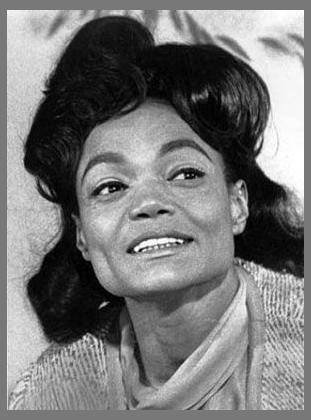 Eartha Kitt
Eartha Kitt
Eartha Kitt: The Enigmatic Vocalist Behind "Santa Baby"
Eartha Kitt, known for her sultry voice and provocative stage presence, was a multifaceted artist who left an indelible mark on the entertainment industry. Born in 1927, Kitt's early life was marked by challenges and adversity. Abandoned by her mother and raised by an abusive stepfather, she found solace in music and dance.
Early Career:
Kitt began her career as a dancer in the chorus of the Broadway musical "Leonard Sillman's New Faces of 1952." Her breakout role came in 1953 when she replaced Eartha Kitt in the play "Shinbone Alley." Her performance as Orpah, a seductive streetwalker, earned critical acclaim and established her as a rising star.
Music Career:
In 1954, Kitt released her debut album, "That Bad Eartha," which showcased her sultry vocals and eclectic repertoire. Her signature song, "Santa Baby," became an instant holiday classic, solidifying her status as a pop music icon. Kitt continued to release a string of successful albums throughout the 1950s and 1960s, including "C'est Si Bon" (1955), "St. Louis Woman" (1957), and "Eartha Kitt Sings for Adults Only" (1958).
Controversies:
Kitt's outspoken nature and unconventional style often landed her in controversy. In 1968, she was blacklisted from the United States after a public exchange with President Lyndon B. Johnson and his wife. The incident stemmed from Kitt's criticism of the Vietnam War and her outspoken support for civil rights.
Later Career:
Despite the setbacks, Kitt continued her career, performing internationally and appearing in films and television shows. She toured extensively throughout the 1970s and 1980s, and released several albums during this period, including "Back in Business" (1981) and "The Essential Eartha Kitt" (1988).
Legacy:
Eartha Kitt's legacy as a bold and enigmatic artist continues to inspire generations. Her music, which blended elements of jazz, cabaret, and pop, transcended boundaries and defied easy categorization. Her outspokenness and advocacy for social justice left an enduring impact on the entertainment industry and beyond.
Members:
As a solo artist, Eartha Kitt did not have a band. She performed with a backing band of session musicians who varied depending on the gig or recording session.
Eartha Kitt, known for her sultry voice and provocative stage presence, was a multifaceted artist who left an indelible mark on the entertainment industry. Born in 1927, Kitt's early life was marked by challenges and adversity. Abandoned by her mother and raised by an abusive stepfather, she found solace in music and dance.
Early Career:
Kitt began her career as a dancer in the chorus of the Broadway musical "Leonard Sillman's New Faces of 1952." Her breakout role came in 1953 when she replaced Eartha Kitt in the play "Shinbone Alley." Her performance as Orpah, a seductive streetwalker, earned critical acclaim and established her as a rising star.
Music Career:
In 1954, Kitt released her debut album, "That Bad Eartha," which showcased her sultry vocals and eclectic repertoire. Her signature song, "Santa Baby," became an instant holiday classic, solidifying her status as a pop music icon. Kitt continued to release a string of successful albums throughout the 1950s and 1960s, including "C'est Si Bon" (1955), "St. Louis Woman" (1957), and "Eartha Kitt Sings for Adults Only" (1958).
Controversies:
Kitt's outspoken nature and unconventional style often landed her in controversy. In 1968, she was blacklisted from the United States after a public exchange with President Lyndon B. Johnson and his wife. The incident stemmed from Kitt's criticism of the Vietnam War and her outspoken support for civil rights.
Later Career:
Despite the setbacks, Kitt continued her career, performing internationally and appearing in films and television shows. She toured extensively throughout the 1970s and 1980s, and released several albums during this period, including "Back in Business" (1981) and "The Essential Eartha Kitt" (1988).
Legacy:
Eartha Kitt's legacy as a bold and enigmatic artist continues to inspire generations. Her music, which blended elements of jazz, cabaret, and pop, transcended boundaries and defied easy categorization. Her outspokenness and advocacy for social justice left an enduring impact on the entertainment industry and beyond.
Members:
As a solo artist, Eartha Kitt did not have a band. She performed with a backing band of session musicians who varied depending on the gig or recording session.